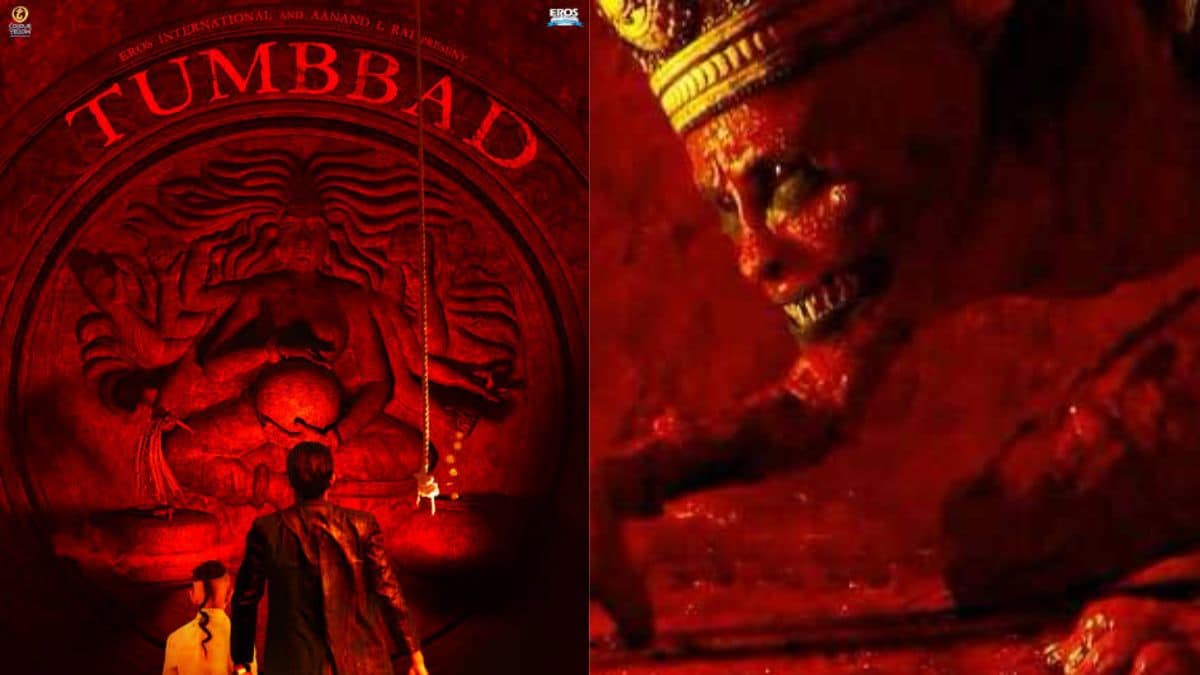Tumbbad, Rahi Anil Barve’s labour of passion and a trailblazer in Hindi cinema’s horror genre, celebrated its fifth anniversary on Thursday.
Tumbbad is a solidly retaining movie that merges themes of man’s insatiable greed and the widespread rural caste system. It underscores how the greatest evil doesn’t lurk in the shadows but, instead, often lies in people’ hearts.
Tumbbad begins with the remark, “There is enough for everyone’s need but not for everyone’s greed,” a theme that echoes throughout the film as Vinayak (Sohum Shah) returns to the “Goddess’s womb” that actually births gold.
It’s not the monster or the fate of those affected by the creatures that makes us shiver—it’s Vinayak’s avarice, which he eventually passes on to his son.
Tumbbad begins with the story of the Goddess of Prosperity and her son Hastar, which immediately reminds us of folklore we grew up hearing/reading.
The villagers defy Hastar’s curse (that he not be worshipped), and as a result, “the Goddess’s anger lashes Tumbbad in the form of an incessant downpour.”
Tumbbad successfully charges itself with mythological storytelling force.
Tumbbad was notably shot across four Monsoons, therefore the rains we see onscreen are not staged, but shockingly real.
This not only adds to Tumbbad’s uniqueness, but it also makes it more suspenseful, fast-paced, and exhilarating, as well as improving its mood and temperament.
Rain has flooded half of Tumbbad, heralding devastation,destruction, and death.
When Pandurang (Mohammad Samad) comes up with the idea of feeding Hastar multiple dough dolls, neither he nor Vinayak or the audience expect what happens next: Hastar clones begin multiplying, eventually turning Vinayak into a charred monster—the same way Vinayak’s grandmother slumbered in her final days.
Everything comes full circle at this point—Pandurang is a child, but Vinayak should have known better.
Tumbbad makes a point about the far-reaching impact of unrestricted avarice in order to expand on the aforementioned topic of humans turning into ugly monsters after being touched by Hastar.
The defaulters here (such as Vinayak’s grandmother or Vinayak) appear to be sentenced to a life worse than death, cursed to rot, deteriorate, and eventually perish.
Death has dignity, but greed has none.
Tumbbad is a commentary on the caste system in rural, pre-Independence India (particularly in the first few scenes), a thriller about a man’s undoing, an atmospheric drama about Vinayak’s path of destruction, and a representation of a man rotten beyond redemption.
Tumbbad, one of those films that clearly deserves to be called a masterpiece, is available on Amazon Prime Video.


